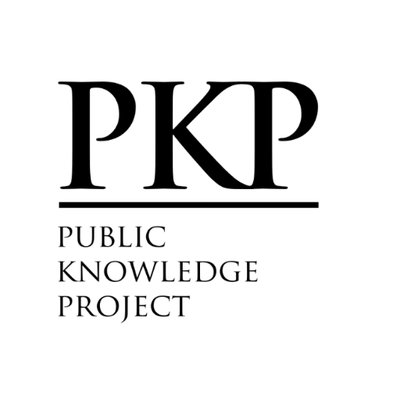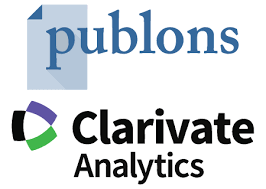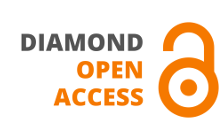The Determinants of financial inclusion and the impact of COVID-19 in the Latin America and Caribbean
DOI:
https://doi.org/10.59051/joaf.v15i3.697Keywords:
financial inclusion, Latin America and the Caribbean (LAC), individual characteristics, and COVID-19Abstract
Purpose: The study examines the determinants of financial inclusion and the impact of COVID-19 in the Latin America and the Caribbean during the pandemic.
Methodology: It uses the database from the World Bank’s Global Findex 2021 collected during the COVID-19 pandemic on eight Caribbean countries to run logit regression to investigate the determinants and how COVID-19 influenced financial inclusion.
Results: On the main determinants, the study found that female and lower income group individuals have low financial exclusion rate though financial inclusion increases with increase income.
Originality of the Paper: The study used data collected during COVID-19 era to investigate how the pandemic affected financial inclusion which is one fo the first of its kind.
Downloads
References
Allen, F., Demirgüc¸-Kunt, A., Klapper, L., Peria, M.S.M., (2016). The foundations of financial inclusion: understanding ownership and use of formal accounts. J. Financ. Intermed.
Amemiya, T. 1981, ‘Qualitative Response Models: A Survey’, Journal of Economic Literature, 19 (4), 1483–1536.
Andersson-Manjang S, K,. and Naghavi, N,. (20321). The State of the Industry Report on Mobile Money 2021, GSM Association
Aterido, R., Beck, T., Iacovone, L., (2013). Access to finance in Sub-Saharan Africa: is there a gender gap? World Dev. 47, 102–120.
Bateman, M., Duvendack, M. and Loubere, N. (2019) ‘Another False Messiah: The Rise and
Rise of Fin-tech in Africa’, ROAP Publications. Available at:
http://lup.lub.lu.se/record/a2df603c-7e0e-4722-af45-5e8be9a558a1 (Accessed: 30 August
.
Beck, T., A. Demirguc-Kunt and R. Levine (2007) ‘Finance, Inequality and the Poor’, ¨ Journal of Economic Growth 12(1): 27–49.
Cramer, J. S. 2007. Robustness of Logit Analysis: Unobserved Heterogeneity and Mis-specifies Disturbances. Oxford Bulletin of Economics and Statistics, 69 (4), 545–555.
Dabla-Norris, M.E., Ji, Y., Townsend, R. and Unsal, D.F., 2015a. Identifying constraints to financial inclusion and their impact on GDP and inequality: A structural framework for policy (No. 15-22). International Monetary Fund.
Dabla-Norris, M. E., Deng, Y., Ivanova, A., Karpowicz, I., Unsal, F., VanLeemput, E., and
Wong, J., 2015b. Financial Inclusion: Zooming in on Latin America (No. 15-206). International Monetary Fund
Demirgüc¸-Kunt, A., Klapper, L., (2012a). Financial Inclusion in Africa. An Overview (Policy Research Working Paper No. 6088). The World Bank, Washington, DC.
Demirgüc¸-Kunt, A., Klapper, L., (2012b). Measuring Financial Inclusion. The Global Findex Database (Policy Research Working Paper No. 6025). The World Bank, Washington, DC.
Demirgüc¸-Kunt, A., Klapper, L., Randall, D., (2013). Islamic Finance and Financial Inclusion: Measuring Use of and Demand for Formal Financial Services among Muslim Adults (Policy Research Working Paper No. 6642). The World Bank, Washington, DC.
Demirgüc¸-Kunt, A., Klapper, L., Singer, D., Van Oudheusden, P., (2015). The Global Findex Database 2014. Measuring Financial Inclusion Around the World (Policy Research Working Paper No. 7255). The World Bank, Washington, DC.
Demirgüç-Kunt, A., Klapper, L., & Singer, D. (2017). Financial inclusion and inclusive
growth: A review of recent empirical evidence (Policy Research Working Paper, No.
, pp. 1–25. Washington, DC: The World Bank
Demirgüç-Kunt, A., Klapper, L., Singer, D., and Ansar, S. (2022a) “Global Findex Database 2021: Financial Inclusion, Digital Payments, and Resilience in the Age of COVID-19” Washington, DC
Demirgüç-Kunt, A., Klapper, L., Singer, D., and Ansar, S. (2022b). Global Findex Database 2021: Financial Inclusion, Digital Payments, and Resilience in the Age of COVID-19. Washington, DC: World Bank. doi:10.1596/978-1-4648-1897-4. License: Creative Commons Attribution CC BY 3.0 IGO
Didier, Tatiana, and Sergio L. Schmukler. 2013. Financial Development in Latin America and the Caribbean: Stylized Facts and the Road Ahead.Emerging Issues in Financial Development: Lessons from Latin America. Washington: World Bank, pp. 25–89. [CrossRef]
Emara, N, and El Said, A, (2021). Financial inclusion and economic growth: The role of governance in selected MENA countries. International Review of Economics and Finance 75: 34–54.
Fungácová, Z., Weill, L., 2015. Understanding financial inclusion in China. China Econ. Rev. 34, 196–206.
Gabor, D. and Brooks, S. (2017) ‘The digital revolution in financial inclusion: international
development in the fintech era’, New Political Economy. Taylor & Francis, 22(4), pp. 423–
doi: 10.1080/13563467.2017.1259298.
Gershenson, D., Herrera, L, Lambert, F., Ramos, G,. Rousset, M., and Torres, J 2021). Fintech and Financial Inclusion in Latin America and the Caribbean. IMF Working Paper WP/21/221
Hartarska, V. and Nadolnyak, D. 2008, ‘An Impact Analysis of Microfinance in Bosnia and Herzegovina’, World Development, 36 (12), 2605–2619.
He, D., R. Leckow, V. Haksar, T. Mancini-Griffoli, N. Jenkinson, M. Kashima, T. Khiaonarong, C. Rochon, and H. Tourpe. (2017). “Fintech and Financial Services: Initial Considerations.” IMF Staff Discussion Note, 17/05.
Hosmer, D. and Lemeshow, S. 2000, Applied Logistic Regression, New York, John Wiley and Sons.
Jayanti A. D., Agusti K. S,. and Setiyawati Y. (2021)/. Barriers to Access Formal Financial Services: An Empirical Study from Indonesia Journal of Asian Finance, Economics and Business Vol 8 No 11 pp 97 – 106, 0097–0106 Print ISSN: 2288-4637 / Online ISSN 2288-4645. DOI:10.13106/JAFEB.2021.Vol8.No11.0097
Jungo, João, Mara Madaleno, and Anabela Botelho. (2021). The Relationship between Financial Inclusion and Monetary Policy: A Comparative Study of Countries’ in Sub-Saharan Africa and Latin America and the Caribbean. Journal of African Business, 1–22.[CrossRef]
Jalilian, J. and C. Kirkpatrick (2005) ‘Does Financial Development Contribute to Poverty Reduction?’, Journal of Development Studies 41(4): 636–56
Jungo, J., Madaleno, M,. and Botelho, A. (2022). The Effect of Financial Inclusion and Competitiveness on Financial Stability: Why Financial Regulation Matters in Developing Countries?. Journal of Risk and Financial Management 15: 122. https:// doi.org/10.3390/jrfm15030122
King, R. and R. Levine (1993) ‘Finance and Growth: Schumpeter Might be Right’, Quarterly Journal of Economics 108(3): 717–37.
Li, C, and Wong, J. C (2018). Financial Development and Inclusion in the Caribbean, IMF Working Paper WP/18/53
Mader, P. (2018) ‘Contesting Financial Inclusion’, Development and Change, 49(2), pp. 461–
doi: 10.1111/dech.12368.
Mader, P. (2016) Questioning Three Fundamental Assumption in Financial Inclusion. Brighton.
Peebles, G. (2014) ‘Rehabilitating the hoard: The social dynamics of unbanking in Africa and
beyond’, Africa, 84(4), pp. 595–613. doi: 10.1017/S0001972014000485.
Steel, W. F., Aryeetey, E., Hettige, H. and Nissanke, M. 1997, ‘Informal Financial Markets Under
Liberalization in Four African Countries’, World Development, 25 (5), 817–830.
Rashdan, A and Eissa, N (2020). The Determinants of Financial Inclusion in Egypt. International Journal of Financial Research Vol. 11, No. 1; 2020 pp 1234 -136, doi:10.5430/ijfr.v11n1p123, URL: https://doi.org/10.5430/ijfr.v11n1p123
Roa, M. J. (2015) Financial Inclusion in Latin America and the Caribbean: Access, Usage and Quality, Center for Latin American Monetary Studies (CEMLA), Mexico City.
World Bank (2021) 2021 Findex Methodology. World Bank the docs.worldbank.org available at
https: Findex-2021-Methodology.pdf
World Bank (2022). The Global Findex 2021 Database and Little Data Book on Financial Inclusion2022. World Bank, Washington DC.
Zins, A and Weill, L (2016). The determinants of financial inclusion in Africa. Review of Development Finance 6: 46–57.
Downloads
Published
How to Cite
Issue
Section
License
Copyright (c) 2024 PAUL ONYINA

This work is licensed under a Creative Commons Attribution-NonCommercial-NoDerivatives 4.0 International License.
Authors who publish with this journal agree to the following terms:
- Authors retain copyright and grant the journal right of first publication with the work simultaneously licensed under a Creative Commons Attribution License that allows others to share the work with an acknowledgement of the work's authorship and initial publication in this journal.
- Authors are able to enter into separate, additional contractual arrangements for the non-exclusive distribution of the journal's published version of the work (e.g., post it to an institutional repository or publish it in a book), with an acknowledgement of its initial publication in this journal.
- Authors are permitted and encouraged to post their work online (e.g., in institutional repositories or on their website) prior to and during the submission process, as it can lead to productive exchanges, as well as earlier and greater citation of published work (See The Effect of Open Access).























